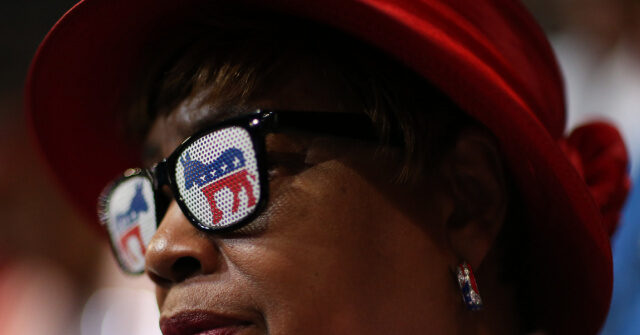Share this @internewscast.com
The Democratic Party’s reputation has plunged to its lowest point since 1990, according to a recent Wall Street Journal survey, with voters largely leaning towards Republicans on almost all significant concerns. This shift comes despite widespread disapproval of Donald Trump’s handling of pivotal matters such as inflation, tariffs, and international relations.
In a new Wall Street Journal survey, the Democratic Party’s standing with American voters has reached a 35-year low. The results reveal that 63% of respondents have an unfavorable view of the party, marking the worst rating since 1990, while only 8% possess a very favorable perception. This decline suggests a growing disconnect with the electorate, as Republicans are now favored in nearly every critical area.
The data shows that voters have more confidence in Republicans than Democrats for addressing almost every major issue, including inflation, tariffs, and foreign policy. Notably, there is a significant 24-point lead for Republicans on immigration, highlighting this trend.
Even among voters who disapprove of Trump’s approach to certain policies, the GOP is still favored to lead. For example, voters disapprove of Trump’s handling of inflation by 11 points, yet trust Republicans over Democrats on inflation by 10. The pattern repeats across multiple issues, with voters essentially signaling: We may not love Trump, but we trust his party to govern.
“The Democrat brand is so bad that they don’t have the credibility to be a critic of Trump or the Republican Party,” said Democrat pollster John Anzalone, who co-conducted the survey. “Until they reconnect with real voters and working people on who they’re for and what their economic message is, they’re going to have problems.”
The problems appear to be compounding. The Democrat Party’s grip on voter identity is slipping. While Democrats once enjoyed a six-point registration edge in 2017, Republicans now lead by one point. This marks a rare and significant realignment in the electorate. Republicans built their first durable lead in party identification last year and have maintained that lead today, the Journal poll found.
Democrats still hope to replicate the backlash energy that gave them control of the House in 2018. They are planning town-hall meetings across the country, including in Republican-held districts, to make the case against Trump’s agenda. Meanwhile, the Republican National Committee ended the first half of 2025 with more than $80 million on hand, compared with $15 million held by the Democrats’ national campaign arm.
The only issues where voters preferred congressional Democrats over Republicans were healthcare and vaccine policy. On all other issues tested in the Journal poll, voters expressed more confidence in Republicans.
As OpenAI CEO Sam Altman recently noted in a viral X post, the modern Democrat Party has “lost the plot,” turning away from capitalism, innovation, and the engines of American progress. “I care much more about being American than any political party,” Altman wrote, expressing dismay at what he sees as the party’s growing hostility toward growth and individual achievement.
Separately, prominent Democrats like Barack Obama and Beto O’Rourke have urged their party to toughen up. Obama mocked what he called the “fetal position” mentality, while O’Rourke warned that “Democrats in the past too often have been more concerned with being right than being in power.” “We have to be absolutely ruthless about getting back in power,” O’Rourke added. Despite repeated post-election strategy sessions, Democrats continue to lose ground with Hispanic men and working-class voters, according to recent polling from the Hill.

















